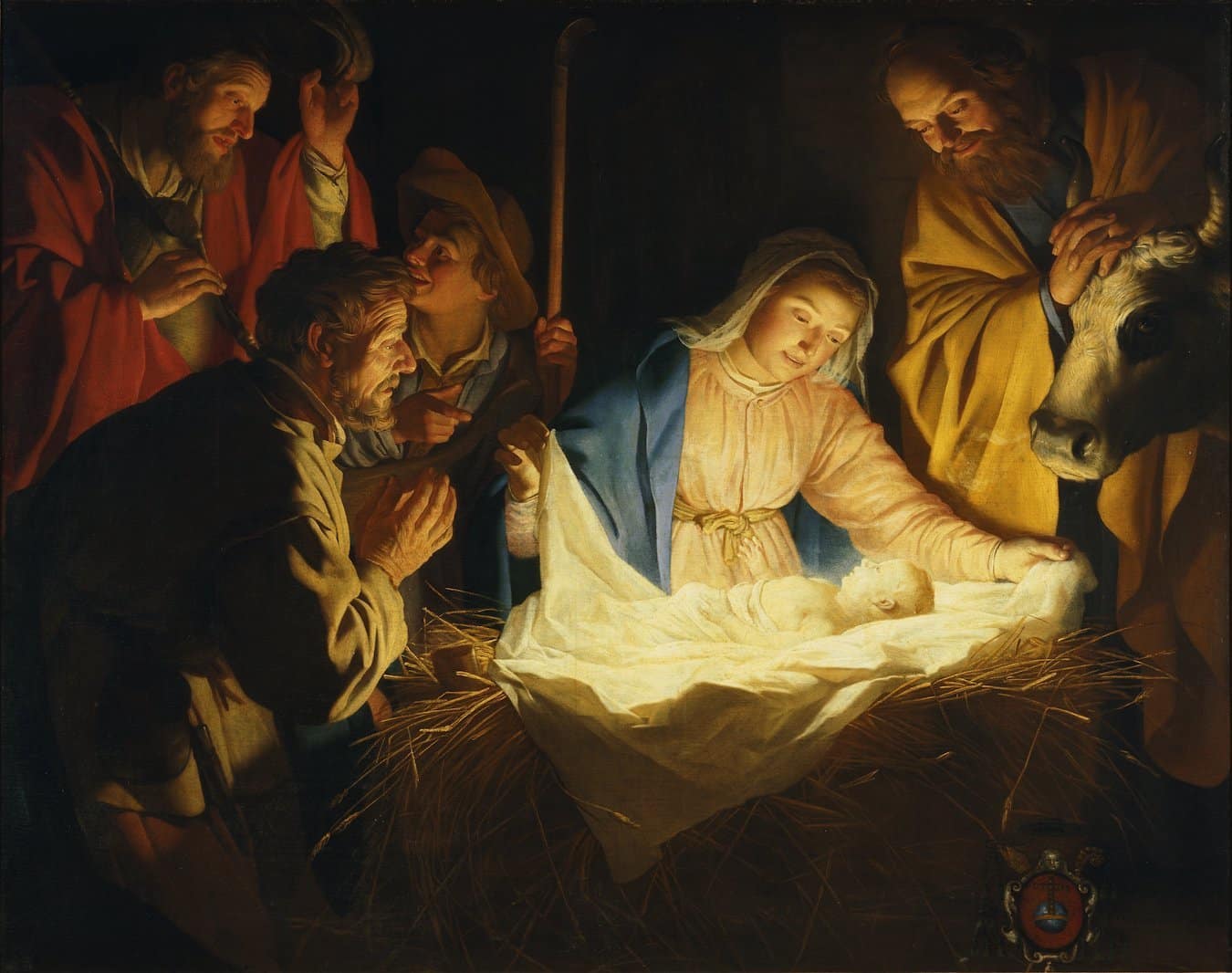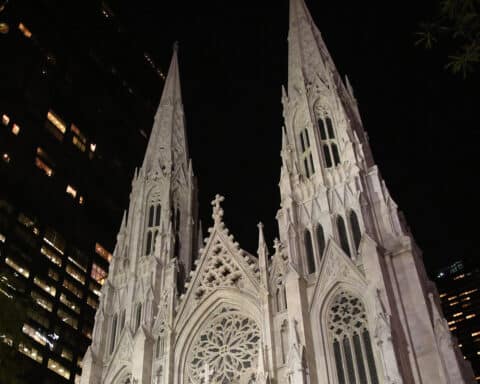During a recent 40 Hours celebration at our parish, I decided to sign up for an hour with our son, preparing for his first confession just before Christmas. Of course, I wanted to support the parish initiative. But, even more, I wanted to spend some special time with our firstborn as he prepares to celebrate the Sacrament of Penance.
I had chosen a few prayers and readings ahead of time, wanting to focus our attention on discipleship and conversion, hoping to plant seeds for reflection on holiness of life and the centrality of the Eucharist in our attempts to answer that call.
Favorite Nativity characters
We sat in the back of our parish church, where we wouldn’t distract others and could have an opportunity to focus our attention on the Lord in a mix of readings, whispered conversation and silence. I drew on some of the richness of Blessed James Alberione’s writings and the spirituality of the Pauline family for our reflections.
In one of Alberione’s more well-known descriptions of the importance of Eucharistic adoration, he describes the similarities of our time with the Eucharistic Lord with other well-known encounters others had with the Master. One of them, among others, is that adoration is “the shepherds at the manger.”
Now my son had some questions about this, and I responded with what I’d regard as forgettable words. But my son responded with something somewhat unforgettable. “I think the shepherds are my new favorite people at the Nativity.”
As I prayed with that in the silence of our Lord’s presence, I started to appreciate the shepherds more — thanks to my son’s new interest in them. The shepherds were poor, on the margins, likely without much love in their lives. Had the angelic host announced Christ’s birth to the rich and affluent, would they have set out in haste to see a baby born in a barn? Why would they hurry … for that? But for the shepherds, why wouldn’t they? Why wouldn’t the hope contained in the heavenly revelation of the newborn king motivate their curiosity and bring meaning to their lives. It was in the low manger that the shepherds, considered nothing in their world, found the All — also appearing in the midst of what the world would call nothingness.
A lesson from the shepherds
This year, as we all endeavor to grow in Eucharistic living during our National Eucharistic Revival, perhaps we can take a lesson from the shepherds. Perhaps we might, amid the mundane and the trivial, begin to see that God is with us? Perhaps we can begin to get a sense of God’s vulnerability on that first Christmas — as a helpless baby, lying in a feeding trough, who actually made the stars of the sky. That vulnerability remained a constant, culminating in his body nailed down to the wood of a cross. His vulnerability was a self-gift, the fullness of love. In this season of gift-giving, do we look for ways to be a gift to others, to live Christ’s vulnerable, selfless love?
Do we still recognize his oneness with us? The accessibility of his presence in every tabernacle? His vulnerability in the form of bread? Do we offer our time to him — run to behold the one the angels heralded that first Christmas? Does our Eucharistic worship bring us the joy that changes us, like the shepherds at that first Christmas, who Luke tells us left the manger and “returned, glorifying and praising God for all they had heard and seen” (2:20).
At Christmas, let us pray that we can be found like the shepherds. May our encounters with the eucharistic Lord, the same as the encounters as the shepherds with the babe in the manger, cause others to ask, as inquired of the shepherds in the carol “Angels We Have Heard on High”: “Shepherds, why this jubilee? Why your joyous strains prolong? What the gladsome tidings be, Which inspire your heav’nly song?”





